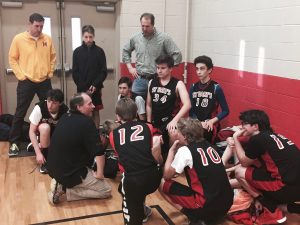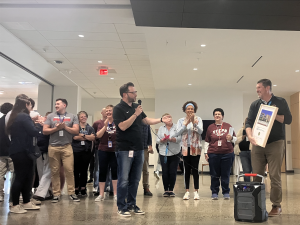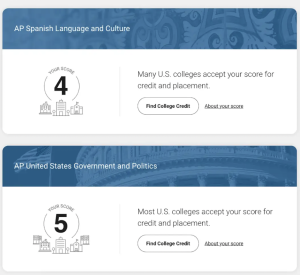So, who runs this place anyways?
A look into student engagement and involvement in school policy
May 29, 2019
Beginning in July 2019, Niharika Singhvi will start a new term as the student representative to the Falls Church City School board. For the past five years, a student from GMHS has served in a non-voting capacity on the school board to give students a voice in district-wide policy. This is one of the vital ways the students participate in policymaking at our school.
Between a dozen Schoology post a day, morning announcements, stable groups, emails, counseling appointments, and classes, it can be quite difficult as a Mason student to understand who is responsible for the daily operation of George Mason High School. This has been exemplified recently with the spreading out of midterm week and ongoing discussions about when the Mustang Rodeo will be and what we are doing for Wild Horse Wednesday.
Oftentimes, it feels like we as students are powerless to stop unwanted change or to speak up for issues that matter to us. Especially when it comes to matters of school policy, the student voice is often drowned out by the larger and seemingly more important voices of parents, teachers, and administrators. The benefit of living in a representative democracy is, however, that the input of citizens can be heard in the policymaking process. If you’re unhappy with certain policies or practices at GMHS, you can have a part in changing those policies or practices for the better. Specifically, this means that there is a democratically-elected body overseeing the operation of schools in Falls Church. That body is the Falls Church City School Board.
The school board is, according to the FCCPS School Board website, responsible for, “[setting] policy for the school division…[approving] the annual budget…[developing] a strategic plan… and [hiring] a superintendent to operate the school division in accordance with board policy.”
Yet most students aren’t fully aware of how this works. In reality, while the school board does grant the FCCPS superintendent, Dr. Noonan, and each school administration significant authority to operate the schools, the school board is responsible for “adopt[ing] policy to provide for the day-to-day supervision of schools,” in Falls Church. In this way, the school board has the final authority over scheduling the school year, approving the hiring of school administrators, and determining policies for the day-to-day operation of the five public schools in the district.
Perhaps more shocking is the statistic that approximately 78% of students don’t know who the GMHS student representative to the school board is. That is, they don’t know who speaks up for their concerns and opinions when school board members debate important policies on Tuesday evenings.
For the 2018-19 year, senior Acacia Wyckoff served in this position. She started her term last July and will remain student representative until Singhvi takes over this summer. As student liaison to the school board, she is responsible for attending school board meetings on behalf of the Mason student body.
“Basically I’m the voice of the students of the school district,” Wyckoff said.
To the board, Wyckoff is the face of the FCCPS student body.
“I go to those meetings twice a month and say thoughts when I have thoughts and then if they have questions outside of those two meetings, they email me,” she said. “I’m on the emails to I get all of the policies…ahead of time. So if I have things I want to ask about, I can email them ahead of time.”
On Student Engagement
To answer the question of why student awareness of and involvement in the activities of the FCCPS School Board is lacking, I sat down for an interview with GMHS Principal Hills in early January. On the whole, Hills emphasized the importance of an engaged student body.
“When I became principal three years ago, [what] I really wanted to do is allow more of the student voice to be heard,” he said.
To that end Hills sat down with [the] SCA executive board and created the student advisory committee this year, which is made up of students from all grades. The committee meets with Hills on a semi-regular basis and discusses administrative issues from a student perspective. Committee members this year are: Seniors Erik Boesen, Clare Bonner, Maddie LaCroix; juniors Colter Adams, Olive Blackstone, Evan Jones, Daniel Miller, Ciel Park, Maansi Suri, Rose Tombul; sophomores Grace Tarpgaard, Jared Robbins, Jonah Werbel; and freshman Truman Lapp.
But as for engagement with the actual school board, Hills acknowledges that there are inherent obstacles to complete involvement: “For a student to be involved [extensively with the school board], I think it would require a significant amount of time, a vested interest that includes…reviewing school board docs, which are 64 pages, [and] attending meetings.” Nevertheless, Hills pointed out the numerous ways for students to engage actively with the school decision-making process. “I think with any of [the students’] concerns, whether it’s going to the SCA executive [board], whether it’s going to Acacia [Wyckoff], whether it’s going to me, just having open dialogue about what [the students] want to see and how they want to be involved,” Hills advised.
Getting Involved
So you want to get involved in shaping school policies. But where do you start? Obviously, you could put yourself forward to become the next student liaison. Additionally, there are eight school board advisory committees specializing in fields ranging from business and education partnerships to student health and wellness. Each of these committees also has their own dedicated student liaison selected in a similar manner to the school board representative. These committees provide a smaller setting for students to get involved by offering input pertaining to specific school-related subjects.
Back in 2013, when the student liaison role was first established, the first Mason student to hold the position, Maeve Curtin, was nominated by the GMHS Student Council Association (SCA) and then confirmed by the school board.
Wyckoff has been a staunch advocate for student issues like studying for exams and longer winter breaks. At the same time, she has been working alongside student body President Katie O’Neill (senior) and the GMHS SCA to better align Wyckoff’s message to the school board with the wants and needs of the students at Mason.
While 92% of students are aware that students can speak at school board meetings in the form of public comments, the time when students actually speak at meetings are few and far between. But as Principal Hills noted: “the Tuesday [school board] meetings — most of them — are open to the public. And I think if nothing else, what I would recommend is at least go for the first hour, hear some of the public comments, take a look at the agenda. I think it is something that is helpful to understand the process.”







